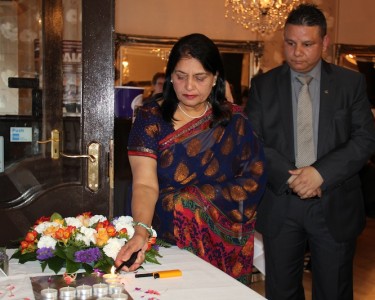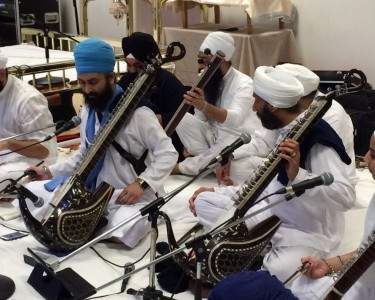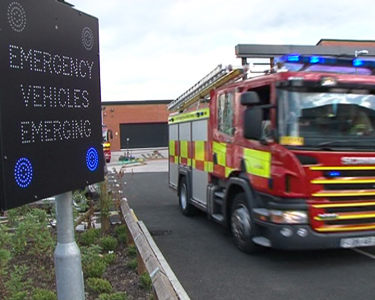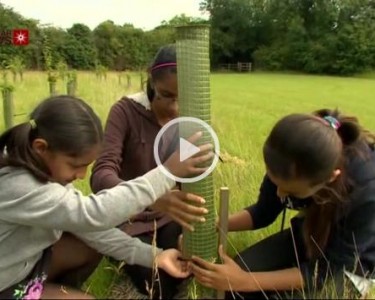 Ten years after an earthquake registering 7.9 on the Richter scale devastated the state of Gujarat, it has transformed itself into the powerhouse of the burgeoning Indian economy.
Ten years after an earthquake registering 7.9 on the Richter scale devastated the state of Gujarat, it has transformed itself into the powerhouse of the burgeoning Indian economy.
More than 20,000 people died and at least a million were left homeless when the tremor destroyed 8,000 towns and villages on Republic Day. Because so many people were taking part in celebrations outside the death toll was not as large as it could have been: most of those who were at home died as the walls collapsed around them.
The death of almost 200 schoolchildren in the village of Anjar was the trigger for huge donations from around the world. The children were on a Republic Day march and thought a bomb had exploded. Terrified they ran into shops and houses on the busy main street and the buildings became their tombs as the roofs caved in.
Bharat Vadukul from the charity Sewa International says: “I went to Anjar and I could not believe how much had been destroyed. The whole place was just rubble. As we were shown around someone told me we were treading on the bodies of children who were buried underneath. It was the most distressing thing I can remember.”
The millions raised by charities have been used to rehouse people and start up new businesses. At first there were fears about the misuse of funds.
Farook Subedar from the Leicester Gujarat Earthquake Relief fund said: “I saw people making roaming telephone calls, living in a five star hotel and so many people told me they travelled business class. I said, ‘This is charity, for God’s sake!'”
Clothes donated to the victims even ended up on open sale in markets in Bombay and other cities. “Those things really disturbed me,” added Mr Subedar. “We were determined to pay our own expenses and make sure all the money went where it belonged – to the earthquake victims.”
It took a long time for the aid to take effect. TV journalist Bharat Patel, who was born in the Gujarat and went there to report on the first anniversary, said: “I was shocked that a year on people was still living in tents and the area looked like a war zone. But returning there after ten years I’m astonished by the scale of the transformation. It’s mainly due to the generosity of donors. ”
Charities and the Indian government have completely rebuilt the Kutch region of the Gujarat following the quake. Many of the villagers used to live in mud huts but now they have modern homes with inside toilets and bathrooms.
Navin Prasad of Sewa International says: “Before the earthquake the villagers lived very much as they did in medieval times. Now these people have been dragged into the 21st century. They have schools, a doctor’s surgery, a temple or a mosque and even running water and it’s all within the village boundary.”
In remote villages women have been helped to take control of their own finances. The Self Employment Women’s Association Charity has set up co-operatives so that women can sell handcrafted goods and receive a fair price for them.
Rupaben Varga said: “We used to make embroidered items and sold them for a few rupees. Now we get more than ten times the old prices and we have our own bank accounts so our husbands can’t run off with the money. Ten years ago we had to ask permission from our husbands to visit a friend in the village and we had to be accompanied. Now we go on our own. I’ve just come back from trade fairs in Mumbai and Bangalore – we have finally won our independence.”
The Indian government has made it beneficial for large firms to set up businesses in the Gujarat to help regenerate the area after the devastation. One of the biggest companies to move to Kutch is Welspun, which makes towels for Wimbledon’s tennis stars and for the US retail giant Walmart. It now employs nearly 25,000 people, most of them in Anjar.
Financial experts predict that China will overtake the US as the world’s largest manufacturer and shortly afterwards India will take China’s position. The Gujarat is leading the way and many see the earthquake as the spur for the economic boom.
Navin Prasad said: “It may sound cruel after the loss of so many lives but the earthquake was a blessing in disguise, it has changed the lives of millions and given so many people a much better standard of living. And what’s happening in the Gujarat is encouraging the rest of India to modernise. Other devastated areas around the world can learn from this. Even in desperation there is always hope.”






